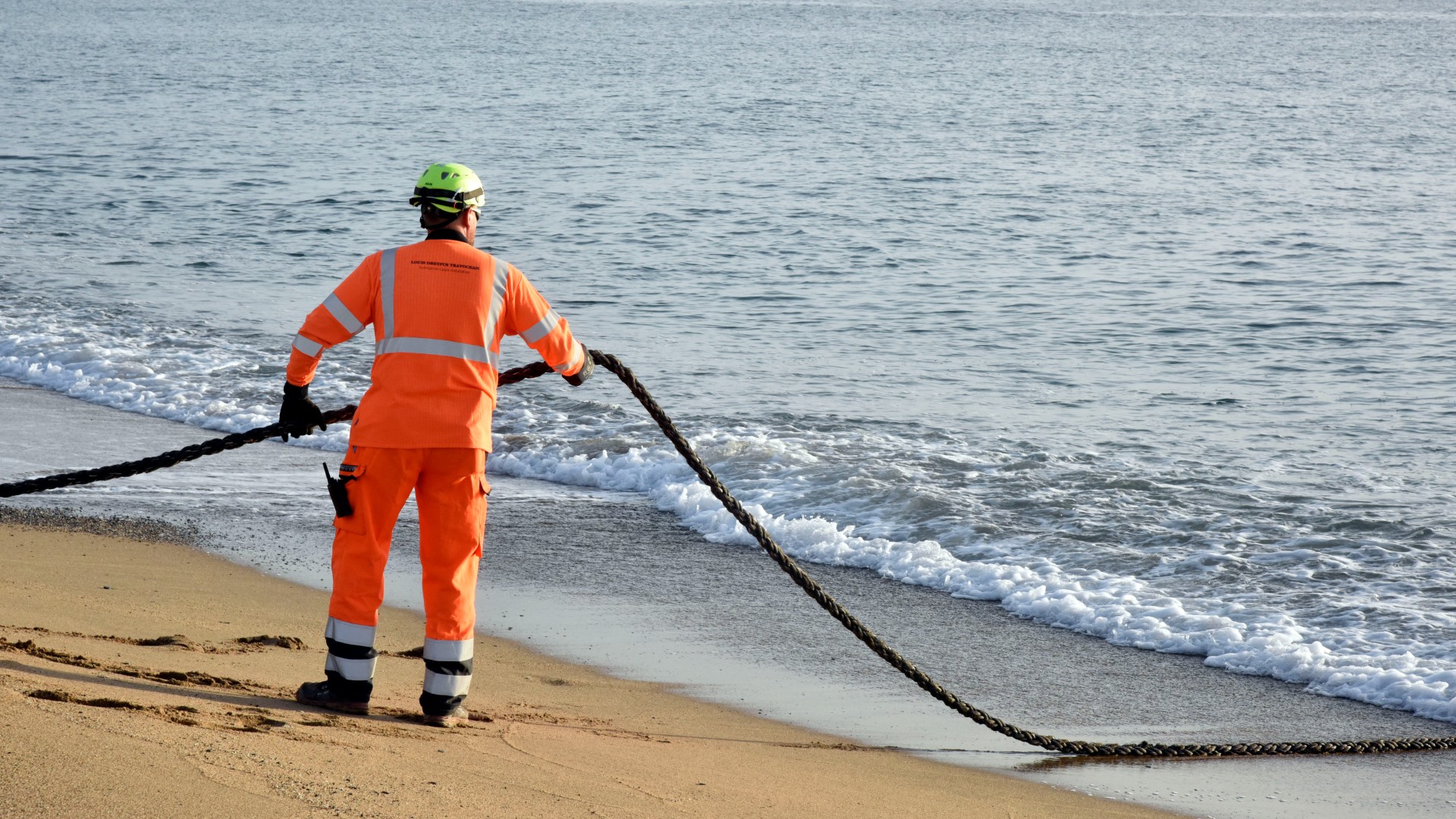How the Red Sea conflict could wreak havoc on the world's internet infrastructure
Houthi rebels in the region have reportedly been targeting underwater cables


A free daily email with the biggest news stories of the day – and the best features from TheWeek.com
You are now subscribed
Your newsletter sign-up was successful
Houthi rebels in the Red Sea have been preying on freighter ships since the war between Israel and Hamas broke out last year, but now appear to be turning their sights toward a new target: internet infrastructure. A recent incident led to four underwater telecom cables being cut, disrupting traffic between Asia, Europe and the Middle East, according to telecom company HGC Global Communications.
This incident resulted in at least 25% of the internet traffic between the three regions being disrupted, HGC said. While the company did not say who was responsible, Houthi rebels have allegedly been ramping up attacks against internet cables in the Red Sea. And telecom firms linked to Yemen's government — where the Houthis are from — have warned that the rebel group could target submarine cables under the ocean's surface.
If the Houthis were to continually strike at internet cables, it could have catastrophic effects on the global communications industry — The Guardian estimates that the Red Sea "carries about 17% of the world's internet traffic along fiber pipes." Why are these cables being targeted, and what will come next?
The Week
Escape your echo chamber. Get the facts behind the news, plus analysis from multiple perspectives.

Sign up for The Week's Free Newsletters
From our morning news briefing to a weekly Good News Newsletter, get the best of The Week delivered directly to your inbox.
From our morning news briefing to a weekly Good News Newsletter, get the best of The Week delivered directly to your inbox.
Why are Houthis attacking internet cables?
Officially — they aren't. Houthi leadership has denied attacking any of the undersea cables. However, there is mounting evidence that the rebels are likely behind the disruptions. A post on a Houthi-affiliated Telegram page last December displayed a map of submarine cables throughout the Red Sea. The message appeared to come with a veiled threat, saying the map was of "international cables connecting all regions of the world through the sea. It seems that Yemen is in a strategic location, as internet lines that connect entire continents — not only countries — pass near it."
And days after Yemen's government alleged that the Houthis would attack internet lines, the first disruption occurred on Feb. 24, with the "organization NetBlocks noticing internet access in the East African nation of Djibouti suffering from interruptions," The Washington Post said. There have also been "disruptions in Bahrain as well, a Persian Gulf island kingdom also served by the lines."
Another mystery is "how the Houthis could attack subsea cables themselves," the Post said, but the Houthis do seem to have a workaround for this. While the cables often lie hundreds of feet below the ocean surface, "subsea cables can be cut by anchors, including those dropped from some of the ships that have been disabled in attacks," and a "drifting ship with its anchor scraping the sea could be the culprit."
What happens if these cables are disrupted?
Continual disruption of Red Sea fiber cables could have massive consequences for global telecommunications. The majority of internet traffic between Europe and East Asia "runs through undersea cables that funnel into the narrow strait at the southern end of the Red Sea," The Wall Street Journal said. As a result, the region has "long posed risks for telecom infrastructure because of its busy ship traffic," with the increase in ship attacks from the Houthis increasing these risks even more.
A free daily email with the biggest news stories of the day – and the best features from TheWeek.com
And when service is cut off, telecommunications companies may be hesitant to deploy new cable lines in the region because of exorbitant costs. Due to the dangers in the Red Sea, "the cost to insure some cable ships near Yemen surged earlier this year to as much as $150,000 a day," the Journal said.
The recent attacks show "how vulnerable critical subsea infrastructure can be, particularly in shallow waters with lots of cables," Bloomberg said. This is particularly true in the Red Sea due to the prevalence of cables in the water. It also is not just the Middle East that could be affected; globally, underwater cables "are the invisible force driving the internet, with many funded in recent years by internet giants such as Google, Microsoft, Amazon and Facebook parent Meta," CNN said.
However, the good news is that most of the time, there is a backup plan if a cable gets destroyed. The majority of telecom companies around the world "rely on multiple undersea cable systems, allowing them to reroute traffic in the event of an outage to ensure uninterrupted service," said CNN. But amid Houthis continually causing problems in the Red Sea, it does not look like the region's internet issue is going away anytime soon.
Justin Klawans has worked as a staff writer at The Week since 2022. He began his career covering local news before joining Newsweek as a breaking news reporter, where he wrote about politics, national and global affairs, business, crime, sports, film, television and other news. Justin has also freelanced for outlets including Collider and United Press International.
